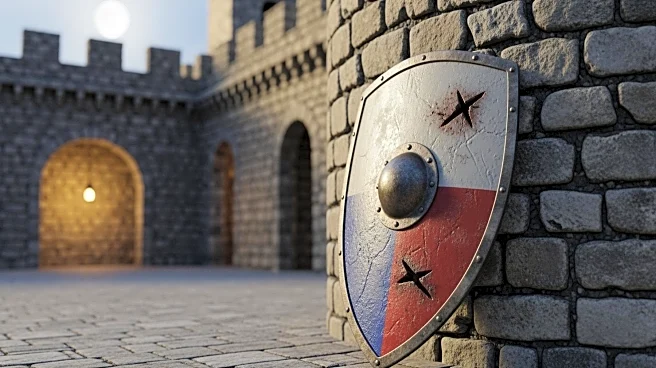What's Happening?
Crimea, a strategically significant peninsula in the Black Sea, has been a focal point for military conflicts throughout history. The region's location has made it a desirable naval base and a target for various empires, including the Greeks, Romans,
Byzantines, and Russians. The Crimean War of 1854-56 exemplified the peninsula's allure, as Russia and France clashed over religious sites in the Ottoman Empire, leading to a broader conflict involving Britain and France. The war highlighted the strategic importance of Crimea, with Sevastopol serving as a key naval base. During World War II, the peninsula again became a battleground, with Nazi Germany and the Soviet Union vying for control. The strategic location of Crimea allowed for power projection into surrounding regions, making it a critical asset for military operations.
Why It's Important?
The historical conflicts over Crimea underscore its strategic significance in military and geopolitical terms. Control of the peninsula offers substantial advantages in terms of naval power and regional influence. The repeated military engagements in Crimea have shaped the political landscape of Eastern Europe, influencing the balance of power among major nations. The region's history of conflict highlights the ongoing geopolitical tensions between Russia and other global powers, with implications for international relations and security. Understanding Crimea's historical role in military strategy provides insight into current geopolitical dynamics and the potential for future conflicts.
What's Next?
The strategic importance of Crimea suggests that it will continue to be a point of contention in international relations. The region's history of military conflict may inform future geopolitical strategies, particularly in the context of Russian-Ukrainian relations. As global powers navigate the complexities of Eastern European politics, Crimea's role as a strategic asset will likely influence diplomatic and military decisions. The ongoing tensions between Russia and Ukraine, coupled with international interest in the region, may lead to further developments in the geopolitical landscape.
Beyond the Headlines
The historical significance of Crimea extends beyond military strategy, touching on cultural and political dimensions. The region's diverse history has shaped its cultural identity, with influences from various empires and ethnic groups. The ongoing geopolitical struggles over Crimea reflect broader issues of national sovereignty, cultural heritage, and international law. The peninsula's history serves as a reminder of the complex interplay between geography, politics, and culture in shaping global events.















